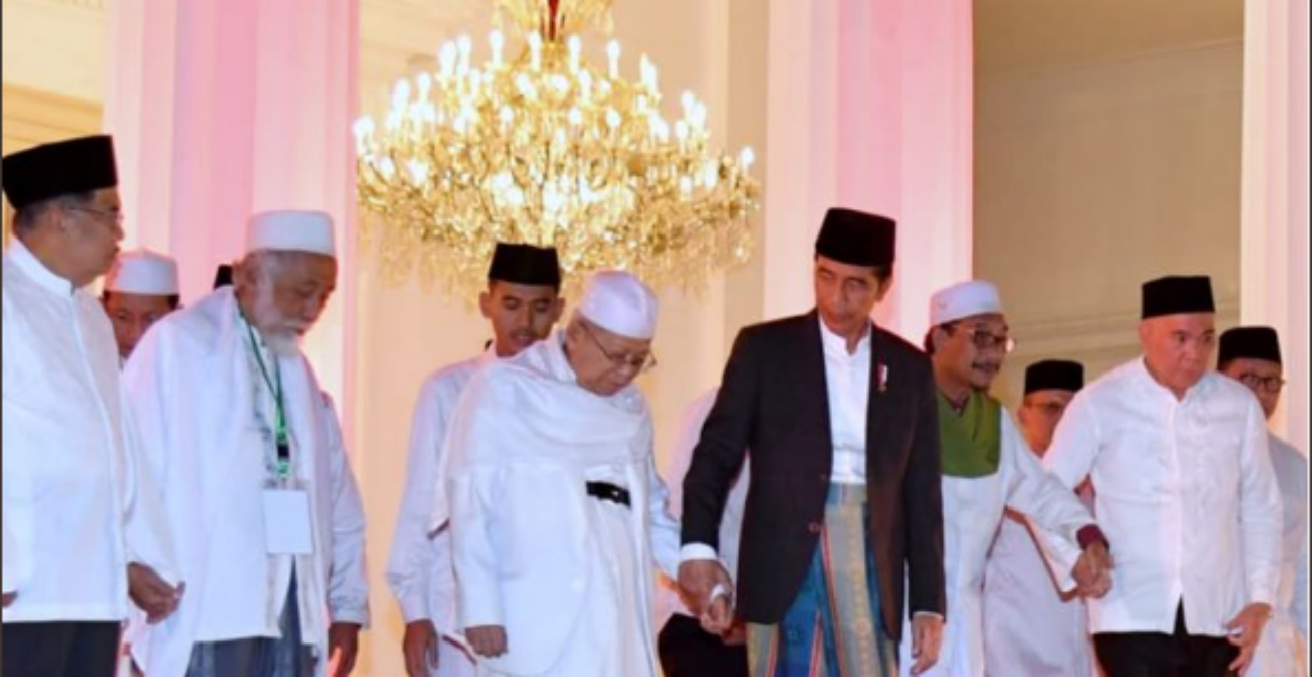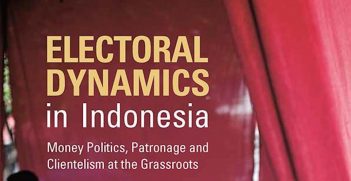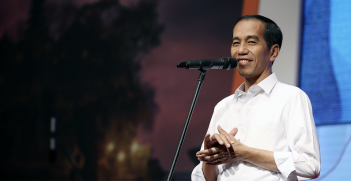Rise of Conservative Islam in Indonesia

The selection of the controversial and highly conservative head of the Indonesian Ulama Council as Jokowi’s vice presidential running mate is disturbing. It reveals Jokowi’s lack of political authority and is yet another demonstration of increasing intolerance among Indonesian Muslims.
Spare a thought for Ahok (Basuki Tjahaya Purnama), Indonesia’s most prominent Chinese and Christian. Once the popular governor of Jakarta and close political partner of President Joko Widodo (Jokowi), he now languishes in a prison cell, serving two years for blasphemy.
How must Ahok have felt when he heard that Jokowi has now chosen Ma’ruf Amin, 75, as his running mate in the presidential elections next April?
Amin is the controversial head of the Indonesian Ulama Council (MUI), the peak body for conservative Muslim organisations in Indonesia. Under his leadership, MUI led the charge against Ahok, declaring that comments Ahok made during the gubernatorial election campaign were blasphemous.
Ahok’s religion and ethnicity quickly became the targets of massive protests by Muslim groups that at one stage saw 700,000 marching in the heart of Jakarta. Under pressure, Jokowi abandoned Ahok, effectively authorising his prosecution.
Amin even gave expert witness evidence against Ahok at the trial, and the court was quick to follow his lead. Ahok lost the election to identity politics and then went to jail.
Once, Ahok was Jokowi’s running mate, elected deputy governor of Jakarta to Jokowi in 2012 and stepping into his shoes when Jokowi resigned in 2014 to run for president. Now Ahok has been destroyed and the man who made sure that happened is Jokowi’s new running mate.
How could this happen in a country that likes to present itself to other Muslim countries a model of democratic pluralism and religious tolerance?
In fairness to Jokowi, Amin was not his choice. He wanted Mahfud MD, a well-regarded and able former Chief Justice of the Constitutional Court with a clean record, a rarity among the political elite. Jokowi reportedly even told Mahfud that he had the job and let him give interviews.
The coalition of parties nominating Jokowi was not happy, however. They were miffed that they hadn’t been consulted, so Jokowi was rolled when they all met to confirm the ticket. Jokowi’s wooden announcement of Amin as running mate revealed the president’s humiliation.
This embarrassing defeat shows how weak Jokowi is as president, and how dependent he is on the coalition he has cobbled together. The popular outsider president who could reach past the elites at the start of his term now seems to have been captured by them, as Mahfud discovered, to his cost.
The coalition’s choice of Amin was obviously motivated by a desire to protect their candidate from the slurs he faced during the last elections, four years ago.
In 2014, the campaign of Jokowi’s opponent, Prabowo Subianto (who is running against him again this time), spread rumours that Jokowi was a closet Christian, of Chinese descent, or even from a communist family. His close association with the Chinese Christian Ahok, once known as ‘Jokowi’s brain’, added fuel to this fire.
It will be much harder for Prabowo’s campaign to get traction for these claims this time, with Amin, the anti-Ahok crusader and one of the most prominent conservative Muslim leaders in the country, standing beside Jokowi.
There is no doubt that Jokowi is a pragmatist, whose principal concern is not principles but staying in power, as Ahok discovered, to his cost. But even Jokowi seemed to find having Amin imposed on him deeply discomfiting.
The choice of Amin has wider implications, however.
Despite the controversy over his running mate, Jokowi still seems likely to win. That will place Amin in position of unprecedented influence for a conservative Muslim scholar in Indonesia, regardless of the fact that Jokowi doesn’t really want him.
Never before will a Muslim scholar have been elected to so powerful a position in Indonesia. Abdurrahman Wahid, Indonesia’s fourth president was also a Muslim scholar, but he was not elected and was decidedly liberal. In fact, he was anathema to the conservatives.
This marks the ascendency of MUI. A non-government organisation established as a regime puppet under Soeharto that reinvented itself as the voice of conservative Islamist intolerance, MUI began to rise as major political player under President Yudhoyono (2004-2014). He often deferred to it and even placed Amin on his advisory council. But MUI now seems poised to sit at the very heart of government.
In fact, Amin’s nomination stands as a powerful symbol of what Dutch scholar, Martin van Bruinessen, has memorably labelled the ‘conservative turn’ among Indonesian Muslims. Others have called it ‘the end of innocence’. The country’s hard-won advances towards liberalism and tolerance are under real challenge from conservative Muslims like Amin, who repudiate them.
He made this clear with attacks on LGBTI Indonesians, Shia Muslims and Ahmadiyah, a minority religious group. His social and political views reflect a notorious MUI fatwa from 2005, issued when he was head of the Fatwa Committee, that damns secularism (se), pluralism (pi) and liberalism (lis) as un-Islamic social diseases, labelling them with the acronym “SEPILIS” (syphilis).
These views are fast becoming mainstream. Pew Research Center surveys suggest that Indonesians are, for example, significantly less accepting of interfaith marriage or living in proximity to members of other faiths than Pakistani Muslims. The same is true for their attitudes to unorthodox Muslim sects. A survey this year by State Islamic University of Jakarta found that 33 per cent of young Muslims believed acts of intolerance against minorities were “not a problem”, and 34 per cent felt apostates should be killed.
The fact that Jokowi’s coalition thinks choosing Amin, one of MUI’s most conservative leaders, as a running mate is a good strategic move for the elections shows just how far Muslim opinion in Indonesia has shifted towards conservatism. Elections seem entrenched, but there is an increasing drift away from the wider liberal democratic aspirations that marked the reforms that transformed Indonesia in the five years after Soeharto fell in 1998.
The vice presidency doesn’t have much formal power in Indonesia, but its symbolic power and ability to influence are important. Once Amin moves into the vice-presidential palace, he will try push politics even further to the religious right.
Sadly, there may be few who will oppose that among the oligarchs, corrupt politicians and New Order elite survivors who now control much of what happens in Indonesia. Certainly, Jokowi is unlikely to stand up vocally for minority rights and face rebuke from his outspoken deputy. And when the next elections come around in 2024, it will be very hard to turn things around if, indeed, anyone wants to.
In retrospect, perhaps Ahok will come to be seen as the canary in the coalmine?
Tim Lindsey is Redmond Barry Distinguished Professor, Malcolm Smith Professor of Asian Law and Director of the Centre for Indonesian Law at the University of Melbourne
This article was originally published on John Menadue’s ‘Pearls and Irritations‘ on 17 August 2018. It is republished with permission.
This article is published under a Creative Commons Licence and may be republished with attribution.





